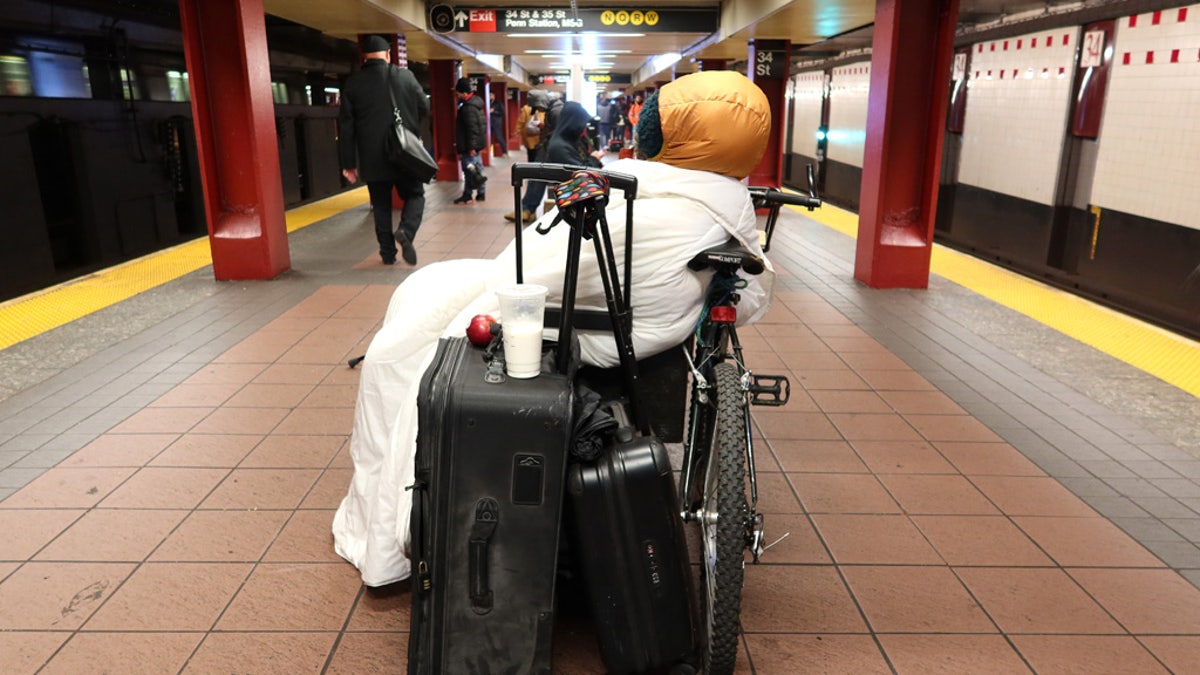Dr. Oz: Is New York past the COVID-19 high point?
Dr. Mehmet Oz weighs in on aggressive antibody testing and new data suggesting New York is past the coronavirus high point
Get all the latest news on coronavirus and more delivered daily to your inbox. Sign up here.
Congress needs to heed MTA Chairman Pat Foye’s plea for another $4 billion in federal aid. The coronavirus crisis has crushed the mass-transit agency’s finances, with roughly $8 billion in toll, tax and fare revenues likely lost this year.
Since the pandemic hit, subway and bus ridership is down more than 90 percent, while bridge tolls have dropped 62 percent.

Subway riders, wearing personal protective equipment due to COVID-19 concerns, step off a train, Tuesday, April 7, 2020, in New York. (AP Photo/John Minchillo)
The MTA is crucial to the functioning of the nation’s most important city — and so will be vital to the nation’s post-coronavirus economic recovery.
CLICK HERE TO GET THE OPINION NEWSLETTER
Even as the WuFlu recedes, concerns about a second wave of outbreaks may leave commuters wary about returning to the subways and buses. MTA senior executive Janno Lieber hinted at such when he unveiled new financial projections last week, noting that key variables for ridership going forward include “how do people feel about using public transit again” amid concerns that the subways have been key to the disease’s spread.

NEW YORK, NY - MARCH 4: A homeless man sleeps on a bench in the Herald Square subway station on March 4, 2020 in New York City. (Photo by Gary Hershorn/FOX News)
CLICK HERE TO GET THE FOX NEWS APP
Without a major influx of cash, the MTA will have to hike fares and cut service, as well as delay much of its $51.5 billion five-year modernization plan. It’s already facing new costs in the hundreds of millions of dollars for regular disinfection of its rolling stock.
CLICK HERE TO CONTINUE READING THIS EDITORIAL IN THE NEW YORK POST





















